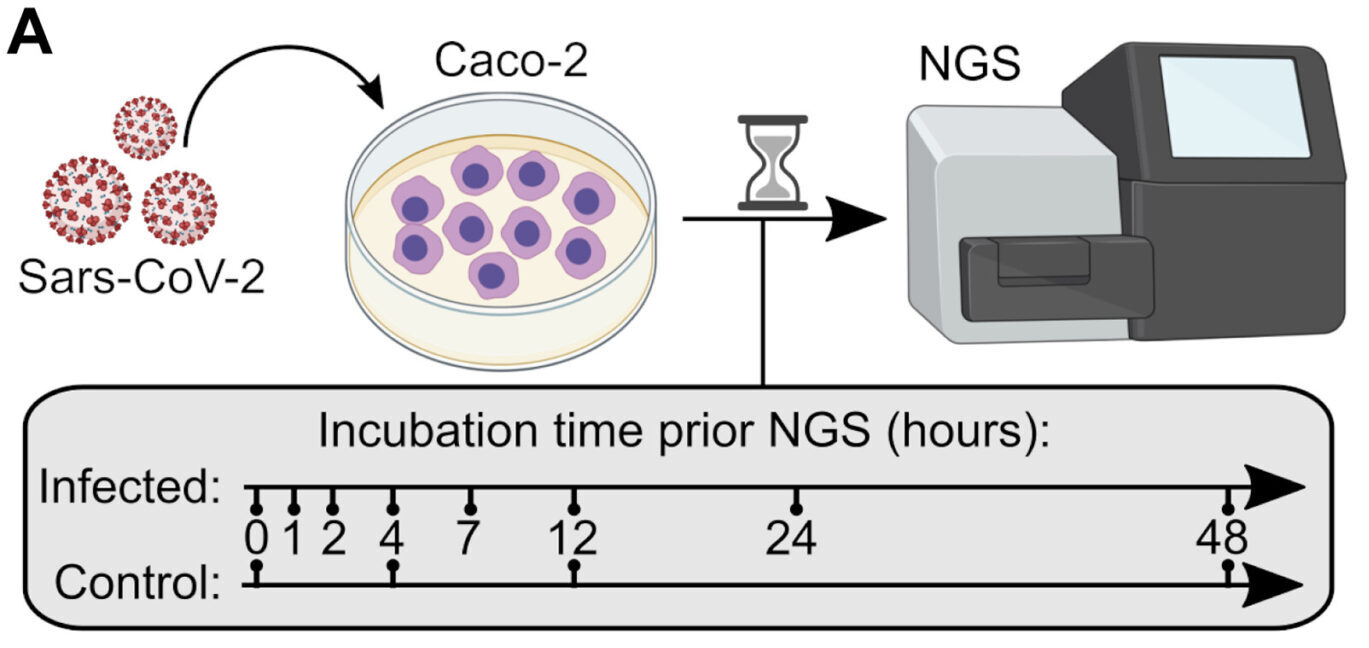
Science Signaling, Sep 2023
Transcriptomics-inferred dynamics of SARS-CoV-2 interactions with host epithelial cells
Virus-host interactions can reveal potentially effective and selective therapeutic targets for treating infection. Here, we performed an integrated analysis of the dynamics of virus replication and the host cell transcriptional response to severe acute respiratory syndrome coronavirus 2 (SARS-CoV-2) infection using human Caco-2 colon cancer cells as a model. Time-resolved RNA sequencing revealed that, upon infection, cells immediately transcriptionally activated genes associated with inflammatory pathways that mediate the antiviral response, which was followed by an increase in the expression of genes involved in ribosome and mitochondria function, thus suggesting rapid alterations in protein production and cellular energy supply. At later stages, between 24 and 48 hours after infection, the expression of genes involved in metabolic processes-in particular, those related to xenobiotic metabolism-was decreased. Mathematical modeling incorporating SARS-CoV-2 replication suggested that SARS-CoV-2 proteins inhibited the host antiviral response and that virus transcripts exceeded the translation capacity of the host cells. Targeting kinase-dependent pathways that exhibited increases in transcription in host cells was as effective as a virus-targeted inhibitor at repressing viral replication. Our findings in this model system delineate a sequence of SARS-CoV-2 virus-host interactions that may facilitate the identification of druggable host pathways to suppress infection.
Visit Journal